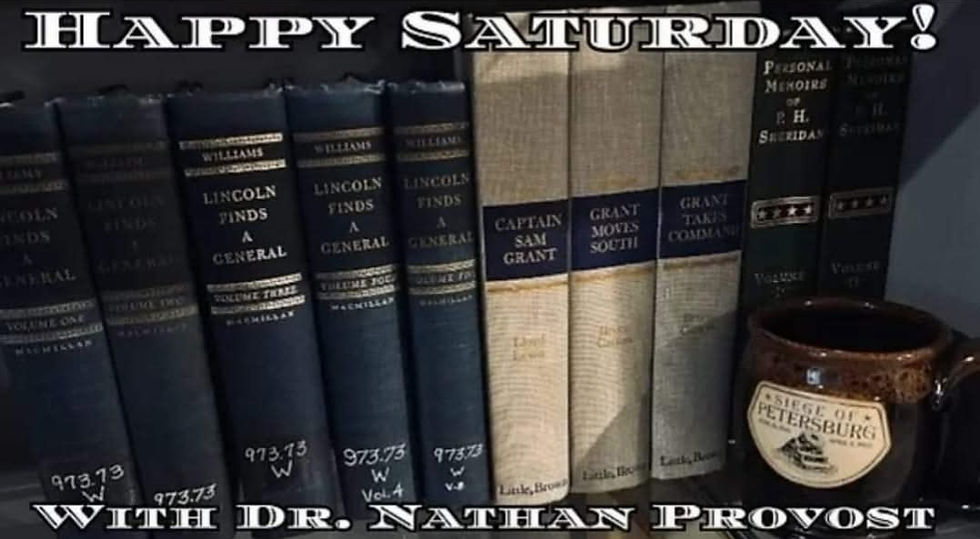Measuring a Genius Under Frederick the Great
- darrenscivilwarpag8
- Sep 6
- 3 min read

A favorite pastime of military buffs is debating the ongoing question of “who is labeled a military genius?” There are multiple YouTube videos out there dedicated to “tier lists” and ranking generals of history or of a particular war. Interestingly, we know the qualities that make up a good commander, but rarely does anyone take the time to define a military genius. There is no measurement, only a list of positive qualities that a commander possesses. Military theorists, Antoine-Henri Jomini and Carl von Clausewitz, claimed that there is a single metric that makes up a military genius called the “coup d’oeil.” They said it was an inherent trait that a general possessed to see all possibilities and make a decisive movement in that instance, or “at a glance.” However, their definitions were a consequence of Napoleon’s campaigns in the 19th century, as they witnessed and read about his exploits. How did military leaders address genius before the 19th century? What made a great commander? There is a variety of answers that could contradict my measurement and definition, but Frederick the Great’s analysis of a military genius is left unnoticed.
Frederick II of Prussia defined a military genius as
[T]he perfection of that art to learn at one just and determined view the benefits and disadvantages of a country where posts are to be placed, and how to act upon the annoyance of the enemy. This is, in a word, the true meaning of a coup d'œil, without which an officer may commit errors of the greatest consequence.
He viewed the importance of seeking advantages beyond the battlefield. He thought that a military genius could see the country and determine how best to use it against an enemy foe. This operational thinking more likely enabled him to succeed in the Seven Years' War. He was often outnumbered by the Russians, Austrians, Saxons, and French. Therefore, how did he use the country to his advantage?

Frederick wanted to occupy Prussian lands and took the initiative to invade Saxony. This move seems foolish, given that it caused France and Russia to join in the war effort. Nevertheless, the move was strategic. It served as a buffer against an Austrian invasion of Brandenburg, as the Austrians could utilize the Elbe River for their necessary logistics. Frederick could garrison the Magdeburg fortress, further hindering any advance through Saxony. Finally, he could supply his troops in the region for the entirety of the war, not having to rely on British finances for war support. He clearly fit his description.
Other examples include George Washington, who did not necessarily win many battles but was able to keep his army intact and constantly harass the enemy, incurring enough losses on the enemy for the British to eventually give up their Thirteen Colonies. Washington lost the battles of Long Island, Brandywine, and Germantown. Yet, he put his army in a strong defensive posture long enough to recoup his losses and annoy the British garrisons throughout the northern colonies. The vast expanse of the North American continent greatly benefited Washington and his men as they could retreat safely after each engagement. They remained largely out of reach of large British expeditions and, fortuitously, won the battles that mattered.

Sébastien Le Prestre, Marquis de Vauban, was best remembered as an engineer who codified 16th and 17th-century siege tactics. He was more familiar with the construction of fortresses, but he was able to see their necessity in places that were significant military objectives. He designed the construction of several fortresses along the border with modern-day Belgium. These two lines of fortifications hindered John Churchill’s progress during the War of Spanish Succession, slowed the advance of the Holy Roman Empire and Russia in the First Coalition War, stopped the Prussians again during the Franco-Prussian War, and became part of the French defensive line during World War I.
Warfare in the Early Modern Era was more challenging to achieve at the strategic and operational levels of war. Operations were in their infancy, and armies could not sustain long campaigns due to a lack of necessary supplies during the winter months. Armies were limited in their movement and their sizes were smaller compared to conscripted armies of the 19th century. Therefore, achieving victory across a vast space was difficult for any nation. Frederick understood how difficult it was to see beyond the battlefield. His understanding of how other nations' countries could work for his army and not vice versa was the definition of “genius” in the Early Modern Era.

Frederick II, Military Instruction from the Late King of Prussia to his Generals. No Publisher. 1797.







Comments